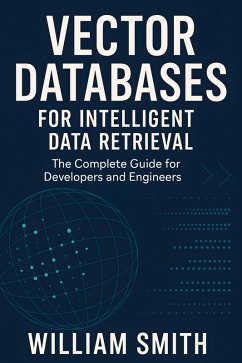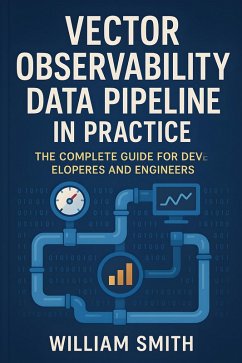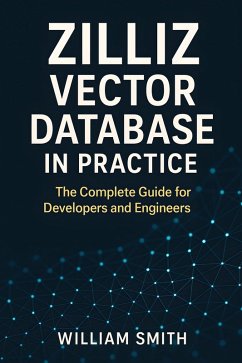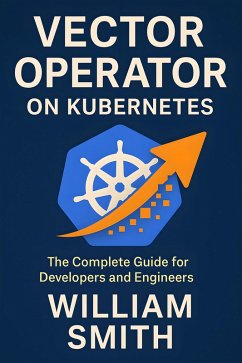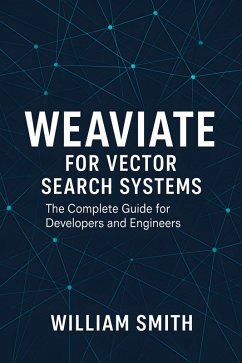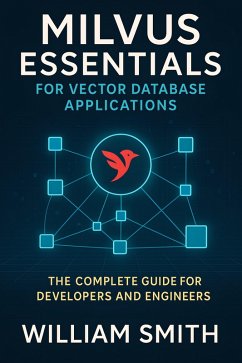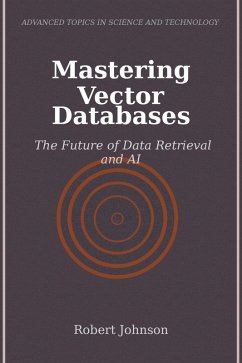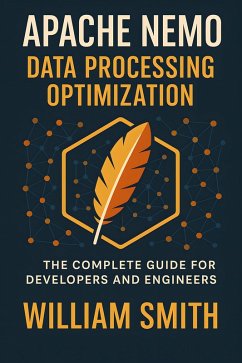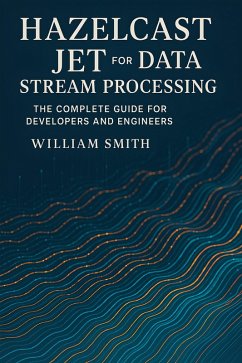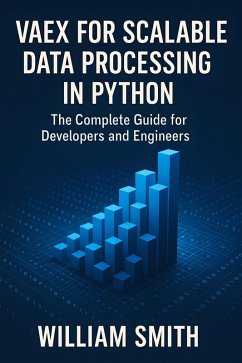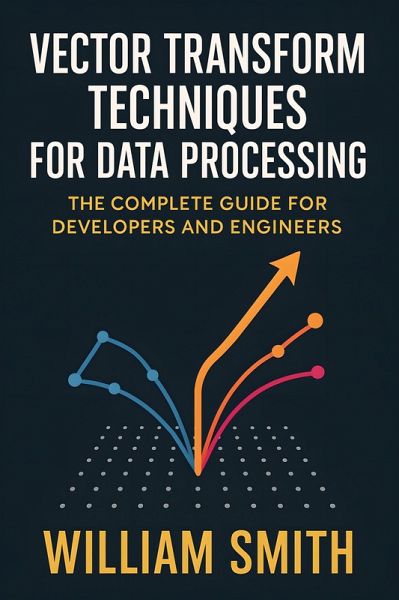
Vector Transform Techniques for Data Processing (eBook, ePUB)
The Complete Guide for Developers and Engineers
Sofort per Download lieferbar
8,54 €
inkl. MwSt.

PAYBACK Punkte
0 °P sammeln!
"Vector Transform Techniques for Data Processing" "Vector Transform Techniques for Data Processing" is an authoritative and comprehensive exploration of the mathematical foundations and modern applications of vector transform methods in the realm of data analysis. The book opens by systematically building the essential linear algebra concepts, delving into vector spaces, matrices, orthonormality, and the vital properties underpinning effective transformation, stability, and representation. Readers gain a rigorous understanding of how mathematical structures like eigenvalue decompositions, chan...
"Vector Transform Techniques for Data Processing"
"Vector Transform Techniques for Data Processing" is an authoritative and comprehensive exploration of the mathematical foundations and modern applications of vector transform methods in the realm of data analysis. The book opens by systematically building the essential linear algebra concepts, delving into vector spaces, matrices, orthonormality, and the vital properties underpinning effective transformation, stability, and representation. Readers gain a rigorous understanding of how mathematical structures like eigenvalue decompositions, change of basis, and unitary matrices form the backbone of data transformation across diverse coordinate systems.
The text progresses to detailed expositions on classical and advanced transform techniques, including Fourier, cosine, sine, Laplace, wavelet transforms, and multiresolution analysis. By bridging theoretical insights with practical algorithmic implementations, the book demonstrates how these tools empower dimensionality reduction, efficient signal processing, and robust feature extraction. Special attention is given to state-of-the-art topics such as compressed sensing, sparse representations, and statistical signal processing, equipping practitioners with strategies for tackling high-dimensional, noisy, or incomplete data in real-world scenarios.
Further distinguishing itself, the book guides readers through the scalable computational strategies required for contemporary data environments-covering fast algorithms, parallelization, memory optimization, and architectures for real-time analytics. The final chapters extend vector transform methods into the forefront of machine learning and emerging domains, highlighting hybrid deep learning approaches, privacy-preserving techniques, and transformative applications in fields like IoT, bioinformatics, and quantum computing. Poised at the intersection of theory and application, this volume is an indispensable resource for engineers, researchers, and data scientists seeking to harness the full potential of vector transforms in modern data processing.
"Vector Transform Techniques for Data Processing" is an authoritative and comprehensive exploration of the mathematical foundations and modern applications of vector transform methods in the realm of data analysis. The book opens by systematically building the essential linear algebra concepts, delving into vector spaces, matrices, orthonormality, and the vital properties underpinning effective transformation, stability, and representation. Readers gain a rigorous understanding of how mathematical structures like eigenvalue decompositions, change of basis, and unitary matrices form the backbone of data transformation across diverse coordinate systems.
The text progresses to detailed expositions on classical and advanced transform techniques, including Fourier, cosine, sine, Laplace, wavelet transforms, and multiresolution analysis. By bridging theoretical insights with practical algorithmic implementations, the book demonstrates how these tools empower dimensionality reduction, efficient signal processing, and robust feature extraction. Special attention is given to state-of-the-art topics such as compressed sensing, sparse representations, and statistical signal processing, equipping practitioners with strategies for tackling high-dimensional, noisy, or incomplete data in real-world scenarios.
Further distinguishing itself, the book guides readers through the scalable computational strategies required for contemporary data environments-covering fast algorithms, parallelization, memory optimization, and architectures for real-time analytics. The final chapters extend vector transform methods into the forefront of machine learning and emerging domains, highlighting hybrid deep learning approaches, privacy-preserving techniques, and transformative applications in fields like IoT, bioinformatics, and quantum computing. Poised at the intersection of theory and application, this volume is an indispensable resource for engineers, researchers, and data scientists seeking to harness the full potential of vector transforms in modern data processing.
Dieser Download kann aus rechtlichen Gründen nur mit Rechnungsadresse in A, B, BG, CY, CZ, D, DK, EW, E, FIN, F, GR, H, IRL, I, LT, L, LR, M, NL, PL, P, R, S, SLO, SK ausgeliefert werden.




